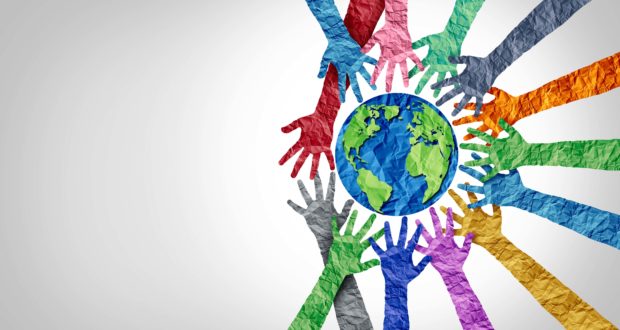As COP 26 in the UK concentrates minds around the world on the impending climate crisis, the thoughts of educators turn to developing the climate citizens of tomorrow.
Developing a generation of citizens capable of the type of thinking we need if the catastrophe is to be averted, is partly the responsibility of today’s schools, teachers and educators.
But we must also see ourselves as responsible for encouraging activism in our students. For many young people, tackling the potential environmental catastrophe is a huge motivation – inspired by the likes of Greta Thunberg – but others worry that there is nothing they can do; that for their generation it is too late.
This often manifests itself outwardly as cynicism.
It is, at least in part, the role of schools and educators to nurture the former – the idea of students as actors in this hugely important story – while encouraging those who feel that they are helpless to see instead that they can be the agents of change.
Of course, Australian teachers do not need to be told this. This is a country that has seen bushfires, heatwaves, floods and other extreme weather events becoming more and more common as the climate crisis becomes terrifyingly tangible.
Educationists will never meet the awesome responsibility of helping to arrest this crisis unless we step back and take a moment to work out the curriculum and assessment model we need for this challenge. Therefore, it’s vital for Australia’s schools and teachers within them to be given the relevant educational tools to support the task we are asking of them.
Interdisciplinary learning – and transdisciplinary learning – is a key part of this toolkit and problems of this magnitude simply cannot be solved through one lens. But teaching and learning must also be based on a cycle of inquiry, action and reflection, with prominence given to active participation.
Beyond breaking down the silos of individual subjects, the future of curriculum design must focus on three areas to ensure the next generation is ready to tackle climate change head on:
1. We must have a curriculum that is designed with the specific challenge in mind
Sustainability must be a key feature of courses and disciplines. This includes the natural sciences, geography, design technology, economics, and business management, but others too. We advocate for a sustainable planet and ask students to consider how the relationship between people, planet and growth is central to this and how siloed subjects interrelate.
2. We must prioritise education in action
Curricula in the future must foster an organic link between in-classroom learning and sustainable action in the community, so that students support sustainability in practical ways. Future programs must contextualise learning with the time, place and community within in which the school is situated. Authenticity of learning is key: students must understand how their learning can manifest itself in the real world.
3. We must foster young people as 'agents of change'
Curriculum and pedagogy should inspire learners, as global citizens, to make a difference and contribute to society. We must promote the importance of “principled action” in terms of making responsible choices and exploring the ethical dimension of decisions to act or not to act. Students must be encouraged to explore issues in a way that empowers them to be not just aware, but engaged. They must be encouraged to explore their own agency – what they themselves can do to make the change we need, on both a global scale and locally here in Australia.
Climate change is a global challenge and citizens of tomorrow will need to apply systems thinking, understanding the interconnectedness of the elements within earth’s systems, through a universal lens.
The curriculum of the future needs to create opportunities for learners to inquire about, and contribute their voice to, the future of humanity.
It should allow young people to make connections between subjects and disciplines. It should also create opportunities for them to connect their values and passions to the communities that surround them.
Too narrow an approach to curriculums and assessment based on local perspectives and a growing obsession with standardised testing risks limiting the problem-solving potential of this next generation of climate citizens.
Throughout history, schools and teachers have evolved to tackle many of the problems facing human society. As we stand on the precipice of the biggest problem yet, the climate emergency, it’s time for education to pivot again.
Never has education been more vital as a force for positive change. Learning must inspire and empower the next generation to tackle climate change head on. We need today’s young people to become the activists we know they can be, rather than the cynics that they risk becoming.
The future of our planet could depend on it.
Olli-Pekka Heinonen is the Director General of the International Baccalaureate Organisation (IB)
Do you have an idea for a story?
Email [email protected]
 Education Review The latest in education news
Education Review The latest in education news

